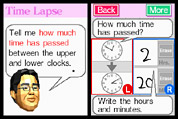When a college student seeks medical treatment at a campus healthcare facility, they probably expect they will be afforded the same discretion as all consumer are under HIPAA (the Health Insurance Portability and Accountability Act). But thanks to a separate, often conflicting federal law, that isn’t always the case. [More]
mental health

Study: Student Loan Debt Linked To Poor Mental Health In Recent Graduates
We already know that student loan debt can have adverse effects on borrowers; from not being able to purchase a home to dinging credit reports. But a new study claims there’s also a link between the piles of debt and poor mental and psychological functioning among young adults. [More]

Buyer Beware: Travel Insurance Likely Won’t Cover Mental Health
Travel insurance can be a boon if you suddenly find yourself cradling the toilet and nesting on the floor of your bathroom like it’s the only place in the world you can possibly exist, to be sure. But if the reason you have to cancel your trip is a mental health issue, it’s not likely that travel insurance will cover you there. [More]

Don't Forget The Ways Exercise Combats Memory Loss
While science has yet to replicate the memory-erasing technology of Eternal Sunshine of the Spotless Mind, it has found a way to do the opposite, determining that exercise and a healthy diet are excellent ways to bolster fading memories. Staying active, socially engaged and eating right helps you maintain your internal hard drive to avoid an unintentional memory wipe. [More]

Women Who Drink Coffee Have 20% Lower Risk Of Depression
According to a new study, women who drink caffeinated coffee showed a 20% lower risk of depression than non-coffee drinkers. [More]

Happiness Costs $75,000
It’s settled, money can buy happiness, and it tops out at $75,000. That’s the result of a new Princeton study which found that the way people evaluated their lives got steadily better as their annual income increased. A lower income makes things like divorce, bad health and being alone more emotionally painful. However, the way respondents rated the quality of their everyday experiences and feelings did not increase after passing the $75,000 mark. [More]

How To Find Affordable Therapy
I know of two great ways to deal with issues in one’s life: drinking heavily, or seeing a therapist. I’ve tried both, and I have to say that the therapy route is more efficient, because if done correctly it can help you figure out why you do what you do, so that you can properly enjoy your liquor without all the tears.
The problem is that therapy sounds expensive, but there are actually affordable options out there if you know where to look. Here are some tips.

Sadness Makes You Spend More
Is [it] a biologically driven disease of the brain, a learned habit run amok, an addiction in its own right or a symptom of the other dysfunctions—most notably depression—that so often accompany it?

Lilly Caves, Agrees To Add Warnings To Schizophrenia Drug
Zyprexa, Lilly’s best-selling drug to treat schizophrenia, has been shown to cause “cause weight gain, high blood sugar, high cholesterol and other metabolic problems,” but until now, the company has refused to add any warnings about these side effects to the label. Now, sparked in part by lower sales, Lilly has announced that Zyprexa will warn consumers that it can cause high blood sugar. The American Diabetes Association claims that Zyprexa causes diabetes, but this isn’t addressed on the new warning labels.
../..//2007/10/01/maybe-television-idiot-syndrome/
Maybe Television Idiot Syndrome (a term we just made up) is reversible: a new study says you can reduce the risk of having an antisocial, depressive child if you reduce his television viewing to less than two hours per day by age 5 1/2. Just make sure you don’t fill up those two hours with Baby Einstein vids. [Reuters]

Are Brain-Training Video Games Effective? The Japanese Think So
“Brain Age” and its recently released sequel are hugely popular video games in Japan and the US. What’s unusual about this is that the games are made for and marketed to “older people” (which in video game language means “anyone over 25”) as a way to improve your mental acuity by keeping your cognitive skills at peak levels. Does any of it work, or is it just a self-help fad for the 21st century? Sharpbrains.com interviews Go Hirano, a Japanese entrepreneur (their description, not ours) who provides a general overview of the current state of “brain training” and its borderline-scientific underpinnings.

Did The Gov's Anti-Meds Warnings Work Too Well?
Some psychiatrists are claiming that the government’s “black box” warnings on the risks of antidepressants for teenagers have worked too well, to the point that they’ve scared off worried parents and lawsuit-sensitive doctors, leaving depressed teens undiagnosed and untreated. The rate of suicide among children and young adults jumped 8% in 2004, one year after the warnings went into effect—it was the biggest one-year spike in suicides for that demographic in 15 years, and psychiatrists worry it was caused in part by the 22% drop in prescriptions of antidepressants.


